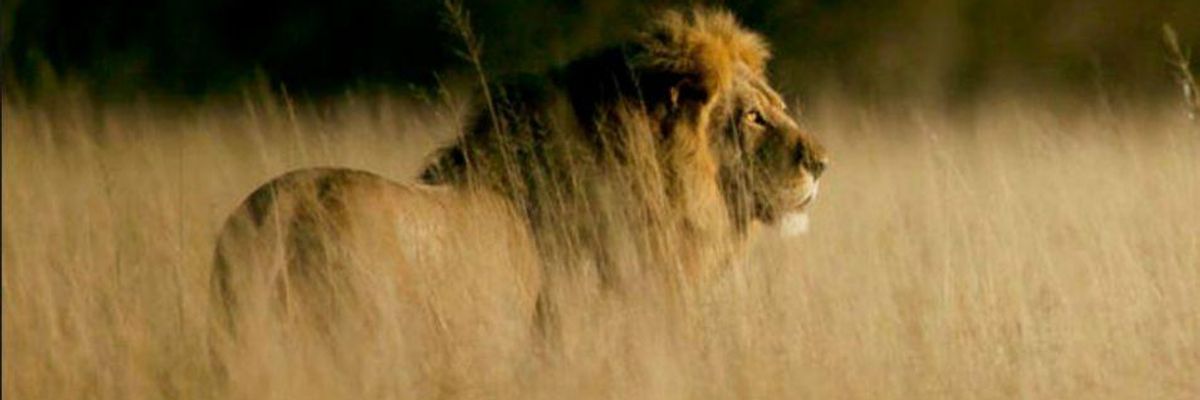Earlier this month, Cecil the Lion - a local celebrity who had reached iconic status amongst visiting tourists and researchers - was lured with food out of the safe confines of a national park in Zimbabwe.
He was then shot with a cross-bow, allegedly by a dentist from Minnesota who paid nearly $50,000 for the hunt. Cecil must have been in intense pain and yet was hunted for another 40 hours.
The hunters ultimately tracked him down and shot him in the head with a gun.
Worse still, killing a pride's dominant male like Cecil can have a ripple effect. Because he no longer can protect his pride from rogue lions, other males, young cubs and females in that now unstable pride are placed in danger - meaning, in all reality, these hunters' actions may lead to the deaths of many African lions, which are a species threatened with extinction.
There are only about 32,000 lions still remaining in the wild - a 60 percent decline over the last three decades. In addition to habitat loss and retaliatory killings, unsustainable trophy hunting is a direct threat to the species, and continues to be an underestimated - or purposefully overlooked - factor in their rapid decline.
The alleged actions of this American dentist, while extremely repulsive, are not new, and no different than sport hunts that take place all the time in Africa and other regions. Species currently in decline -- like lions, rhinos, leopards, elephants, and polar bears --continue to be killed for sport by Americans.
And what is most disconcerting is that the rarer they become, the more people will pay to kill them for sport.
For example the right to kill a critically endangered black rhino in Namibia was recently bought by a Dallas Safari Club member for $350,000.
While Cecil's death was an illegal kill, many endangered species are being killed legally in what are passed off as "conservation" efforts - or paying for the right to kill a rare animal, and then hoping the funds are put towards conservation or will go to local communities. In truth, typically only 3-to-5% of the money from these extravagant hunts is thought to actually end up with the local communities, and the rest of the money can go any number of places - from national governments to high-end foreign outfitters.
This philosophy - that you have to kill an animal to save it - does not make sense morally, economically, biologically, or from a conservation-incentive point of view. In fact, countries, like Kenya, that have made trophy hunting illegal, have benefitted from billions more in ecotourism - a much more sustainable model, where the wildlife can be enjoyed time and time again.
Living free in the wild, being admired--not killed - for their beauty is where these species true and only value should lie. Cecil brought in significant tourist dollars as a living, breathing icon. Now he is nothing more than a sad reminder of what greed and exploitation of wildlife can lead to.

